Why is Bangladesh so far behind its neighbours in green energy use?

It is quite disheartening, not to mention concerning, to learn that Bangladesh ranks the lowest among all the South Asian countries in terms of using renewable energy. A recent study by Dhaka-based think tank South Asian Network on Economic Modeling (Sanem) reveals that the share of renewable energy in Bangladesh's total power generation capacity stands at a measly 1.90 percent. By contrast, Pakistan's renewable energy usage stands at 6.8 percent, Sri Lanka's at 22.22 percent, and India's at 30.2 percent.
Energy experts in the country believe the government is neglecting our renewables potential – and we cannot help but agree. At a time when the world is moving away from fossil fuels and transitioning to renewables, Bangladesh is doing the exact opposite. According to the Sanem research, the government is increasing LNG and other fossil fuel imports to meet the national demand and reduce dependency on our depleting domestic gas reserves. Leaving aside the question of its environmental impacts, how is that a rational financial decision, given the economic challenges we are currently facing? Our foreign exchange reserves have alarmingly dropped under $22 billion (as of September 14, 2023) thanks to our rising import bills and less-than-expected earnings from exports and remittances.
So instead of putting more pressure on our dwindling forex reserves, the government ought to explore and invest in renewables, which will help us not only transition to clean energy but also cut down the debilitating air pollution in the country. Take solar power, for example. Sunlight is a natural resource that Bangladesh has in abundance. The government can make use of this resource not just by setting up new facilities, but also by ensuring effective utilisation of the existing solar panels in the country.
The government has set an ambitious plan to generate 41GW of solar power by 2041, as well as a target of meeting 40 percent of our national demand with clean energy by 2041, as per the Integrated Energy and Power Master Plan (IEPMP). But given the state of things at the moment, it is evident that no effective plan is in place to reach these goals. The relevant government agencies need to redirect their focus and formulate an action plan that will help us become a clean-energy country sooner than later. Renewables are the future, and the government needs to put in concerted efforts if it wants to meet its own goals.

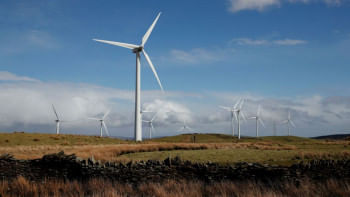
 For all latest news, follow The Daily Star's Google News channel.
For all latest news, follow The Daily Star's Google News channel. 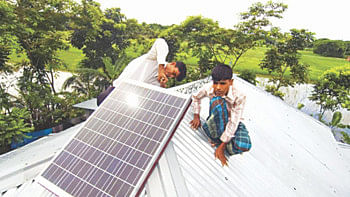
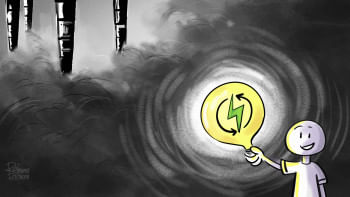




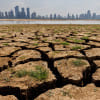

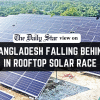


Comments